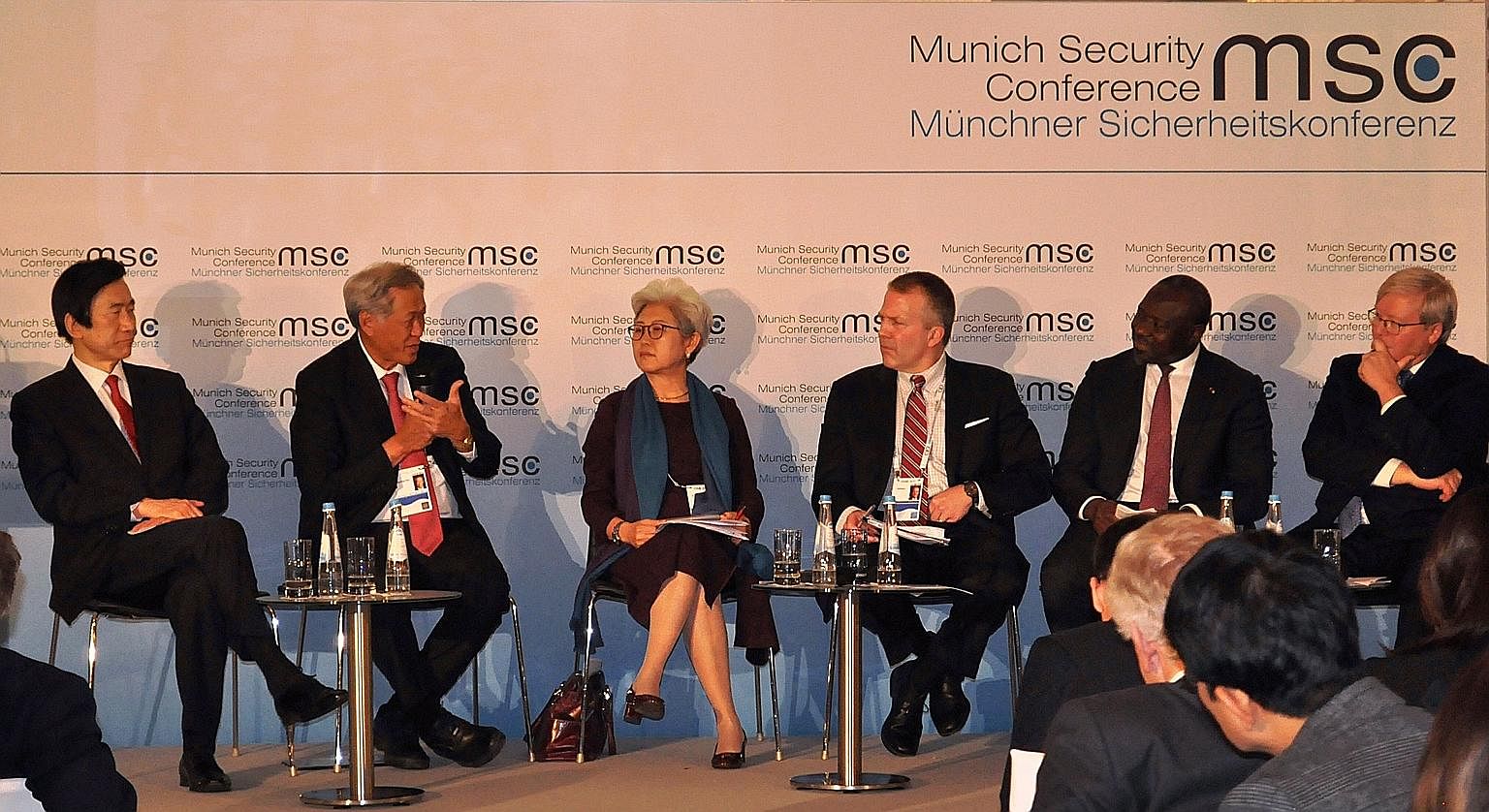Defence Minister Ng Eng Hen has called on both Washington and Beijing to spell out their foreign policy objectives in Asia, now that a new US administration is in charge.
Speaking at the Munich Security Conference on Saturday evening, he noted that how the US and China engage with each other and other Asian countries will have a significant impact on regional stability.
If the US adopts an anti-China stance, "it will be a frustrating decade ahead for many of us in Asean and in Asia", he told senior defence officials from around the world.
"Similarly for China, if its efforts are viewed as means to usurp the US as the resident Pacific power, countries will have to choose sides and be put into lose-win situations," he told the annual conference Germany has held since 1963.
Dr Ng was on a panel titled "Pacific No More? Security in East Asia and the Korean Peninsula", which was chaired by former Australian prime minister Kevin Rudd. The panel also included Ms Fu Ying, chairman of the Foreign Affairs Committee of China's National People's Congress, and South Korean Foreign Minister Yun Byung Se.

Dr Ng said that, if both the United States and China conduct foreign policy on a transactional basis, such an approach would give rise to trading and even security blocs.
This could mean the US provides a security umbrella in exchange for trading and commercial privileges, or China uses security considerations to barter with countries that need access to Chinese markets.
That the US as a military power can continue its presence and influence in the Pacific is not in doubt, Dr Ng said. "But this military prowess, while necessary, is insufficient for continued stability and progress in Asia," he added.
Dr Ng also called on China, as a rising power, to articulate its inclusive vision for Asia and beyond.
"That vision will realistically serve China's interests but not exclusively, and must also provide other countries the assurance of clear, common and acceptable rules around which countries can evolve a new order," he added.
He noted that some of these efforts have started, such as One Belt One Road, the Asian Infrastructure Investment Bank, and the Asean-led Regional Comprehensive Economic Partnership. These are "initiatives which Singapore fully supports and will facilitate".
Dr Ng drew a contrast between US President Donald Trump's "America first" approach and former US president John F. Kennedy's pledge to Asia - in 1961, at the start of the Cold War - that the US would "pay any price, bear any burden...to assure the survival and the success of liberty". And particularly for Asean states, that "one form of colonial control shall not have passed away merely to be replaced by a far more iron tyranny".
Dr Ng said the fight against communism gave countries a common cause to rally around, and justified the expansion of US influence in Asia. The US also led the establishment of institutions that form the fabric of globalisation today.
"On what basis will the continued US presence and influence be legitimised under an 'America first' policy?" he asked.
In these uncertain times, he said, platforms such as the Asean Regional Forum, the East Asia Summit and the Asean Defence Ministers' Meeting-Plus - which all involve the US, China, Asean and key partners - "need to play productive roles" to promote better understanding between countries.

